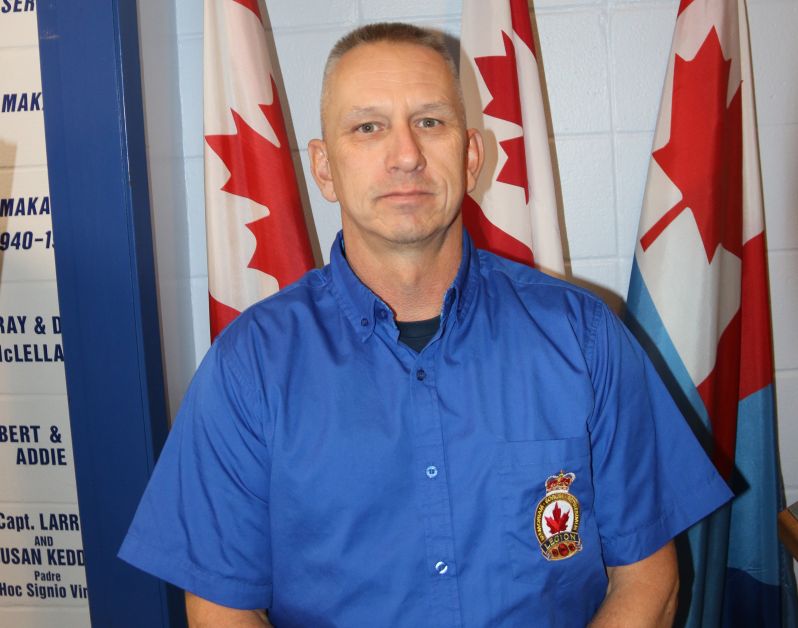
For some, the urge to serve their country comes at an early age, and that was the case for Drumheller Legion First Vice President Chris Brown. He had a long career as a reservist and he would recommend it to others wishing to serve.
Brown grew up in Calgary and his first taste of the military came as an Air Cadet. He was hooked.
“I joined at 12 years old, and I left the cadets and joined the reserves at 17 years old. I joined the King’s Own Calgary Regiment,” he tells the Mail. “I always liked military types of stuff and love history, and I wanted to learn how to fly.”
Through Cadets, he earned his glider licence. The reserves he joined was army.
He was sworn into the reserves on his birthday when he turned 17 and trained in Calgary.
“When I got in we were on exercise once every two months. We would either be up in CFB Wainwright or at CFB Suffield. We had two armoured squadrons and recognizance squadron,” he said.
When he first joined he was part of the recognizance squadron, but in his first summer took the courses to join the armoured squad.
It wasn’t long until he was called into service.
“Most regular force units when they go overseas for different tours, they don’t have a full complement of soldiers to fill every position so they put a call out for reserves to be able to get soldiers in to augment,” he explains. “You have to apply for them.”
In 1991, he was in Cyprus as a peacekeeper. He was attached to 1PPCLI. He was 20 years old at the time.
“As a peacekeeper there, you were paroling what they call the “Green Zone”, which was a buffer zone of land between the Turkish and the Greek Forces,” he explained. “we had a couple of minor incidents.”
In 1994 he was in Bosnia attached to the Lord Strathcona Horse as a peacekeeper. They were based out of Kosovo but travelled throughout the countryside. They would do vehicle patrols and foot patrols.
“Bosnia was still an active war zone,” he said. “A lot of it was just observation, just because the rules of engagement the UN had set out. In a lot of ways we couldn’t intervene in some stuff,” he said.
As a young man, it was a shocking experience that affects him today. There were a couple of times they had to engage.
“For a place like Bosnia, I don’t think you could prepare because of the genocide and the mass grave sites,” he said. “It really didn’t bother me until later.”
He served in Bosnia for six months. He still keeps in touch with some of the soldiers he served with.
Locally he served during the 1997 Winnipeg floods.
There are lots of options as a reservist. While some can participate in exercises and parade, others can become more involved and volunteer for service. For Brown, he spent much of his 15-year career working for the armed forces.
“An average year for me, I would be in Wainwright for 9 or 10 months of the year,” he said. Some of that service would be general work, but he also acted as an instructor or a non-commissioned officer.
He retired in 2003. He would recommend the reserves, it gave him many benefits including a sense of structure and a sense of respect and duty.
“Would I change anything looking back? I was already starting my release process when Canada went to Afghanistan. That’s what I would have changed, I would have stopped my release process.”







